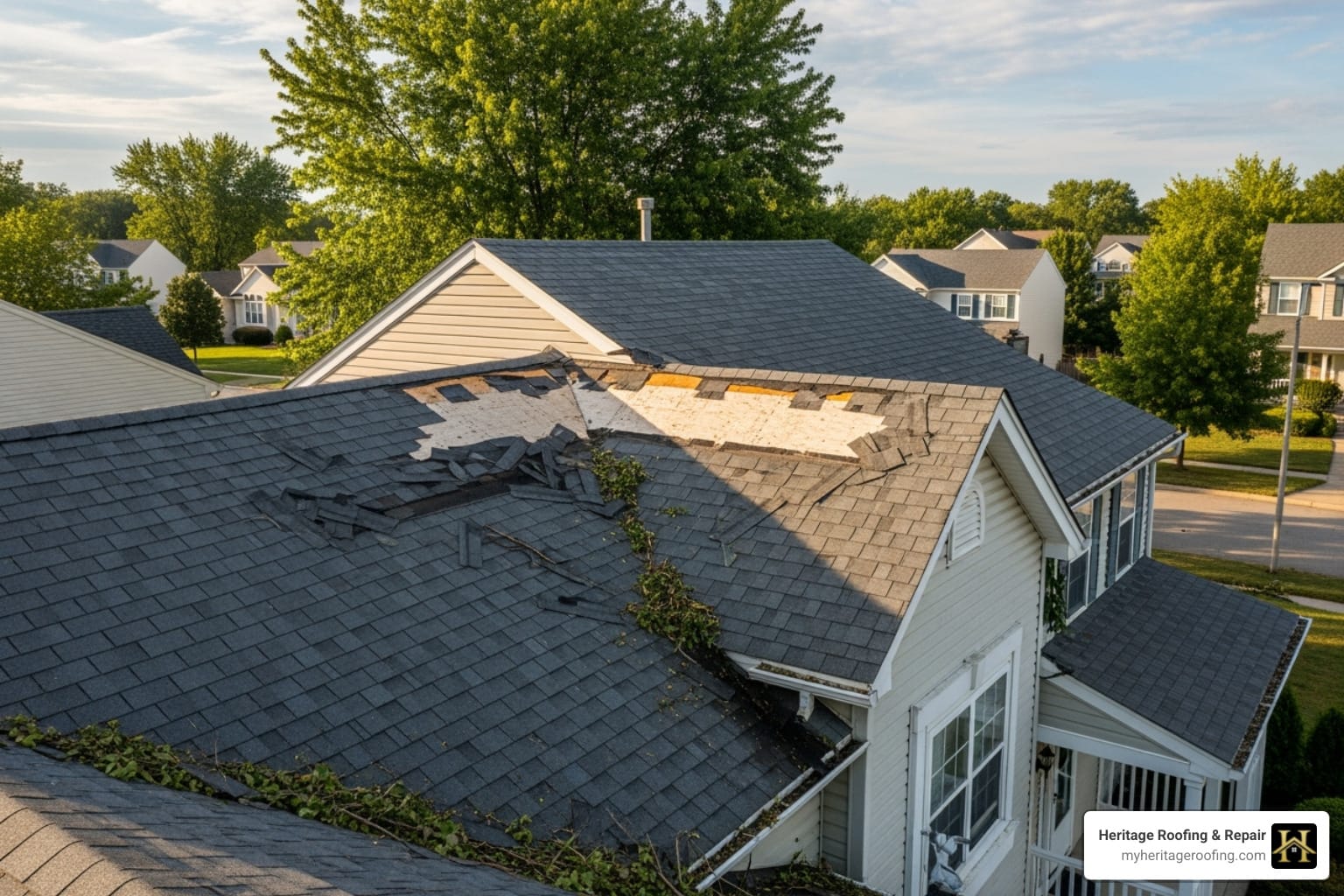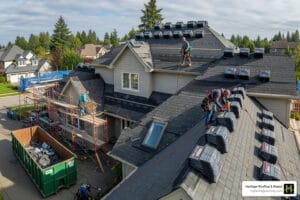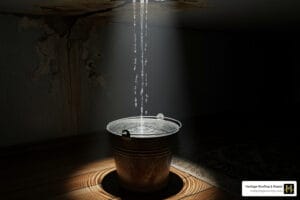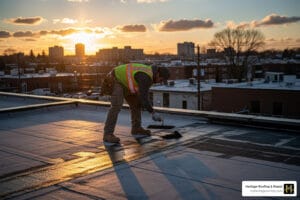Roofing Repair Cost Guide: What You’ll Pay and How to Save
Roofing repair cost can vary dramatically, with national averages ranging from $767 to $3,183 for most projects. However, homeowners typically pay around $1,564 for standard repairs. Here’s what you can expect to pay for common roof repairs:
Quick Cost Reference:
- Minor repairs (missing shingles): $360 – $1,830
- Leak repairs: $350 – $1,550
- Flashing repair: $200 – $500
- Major repairs (sagging roof): $1,500 – $7,000+
- Emergency service surcharge: $100 – $300
A damaged roof is more than just an eyesore – it’s a threat to your home’s structural integrity and your family’s safety. Whether you’re dealing with storm damage from Arkansas weather or simply aging materials, understanding repair costs helps you make informed decisions and avoid costly surprises.
The good news? You don’t have to steer this alone. With proper planning and the right professional guidance for your local roofing services, you can protect your home without breaking your budget.
About Your Guide: I’m Rex Wisdom, owner of Heritage Roofing & Repair, where my family has served Berryville and Northwest Arkansas for over 50 years. Through thousands of projects, I’ve helped homeowners understand roofing repair cost factors and make smart decisions that protect both their homes and their wallets. My experience spans everything from emergency storm repairs to planned maintenance, giving me deep insight into what truly drives repair expenses in our region.
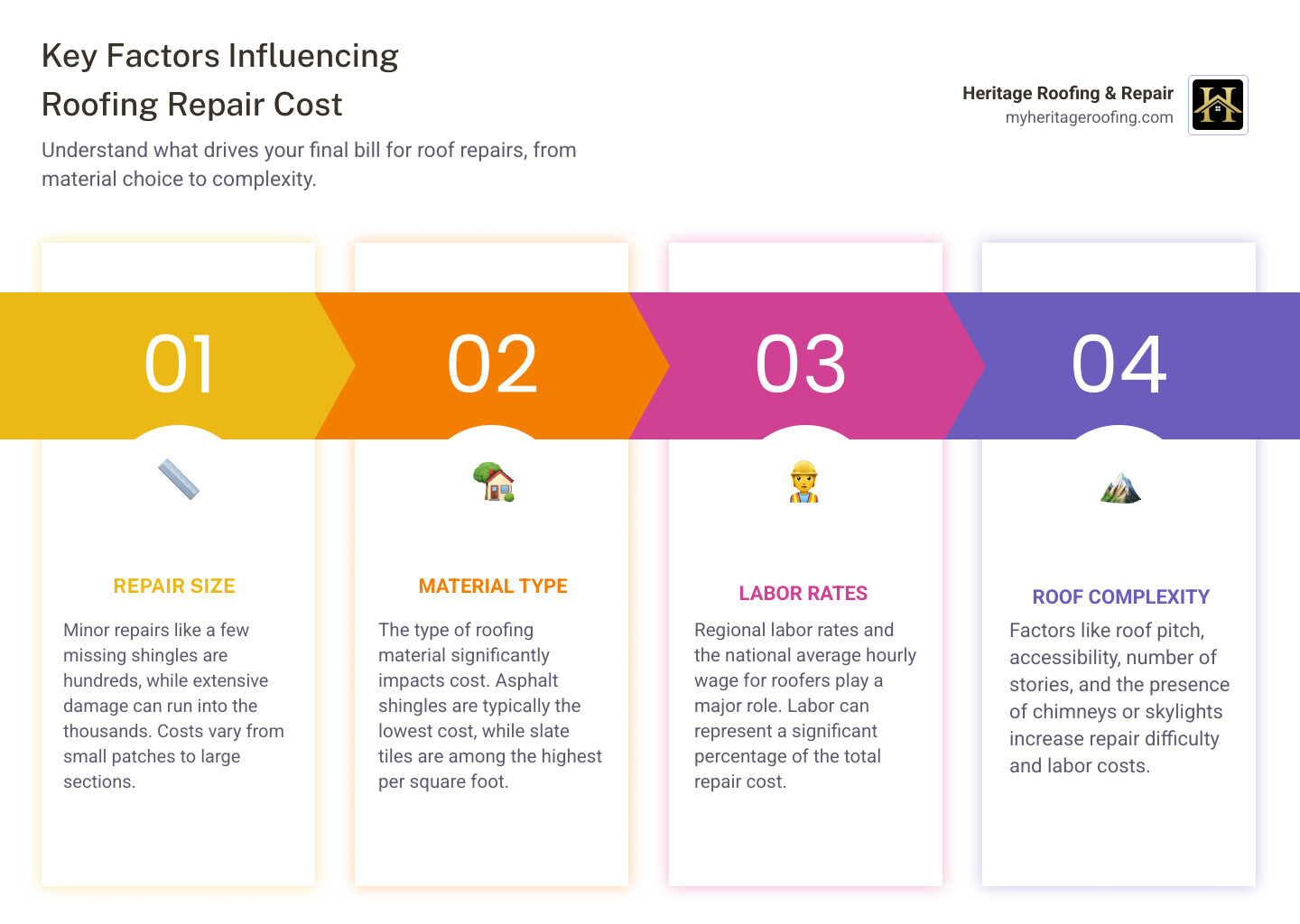
Understanding the Average Roofing Repair Cost
The national average cost to repair a roof is around $1,564, but this figure is just a starting point. Minor repairs like replacing a few shingles might only cost a few hundred dollars, while more extensive damage can run into the thousands. For instance, while some sources indicate that the average roof repair in Dallas costs around $657, and in Baltimore, MD, it averages $1,095, these are just snapshots. In Toronto, the average cost for a roof repair ranges from $500 to $1,000, though it can go as low as $200 for minimal issues or up to $3,000 for more significant problems.
Costs in Northwest Arkansas, including Berryville, Fayetteville, and Harrison, can vary based on local material availability, labor rates, and the specific challenges presented by our regional climate. Understanding what goes into the price is the first step to creating an accurate budget for your specific Roof Repair project. We believe in transparent pricing, ensuring you know exactly what you’re paying for and why.
Key Factors That Influence Your Final Bill
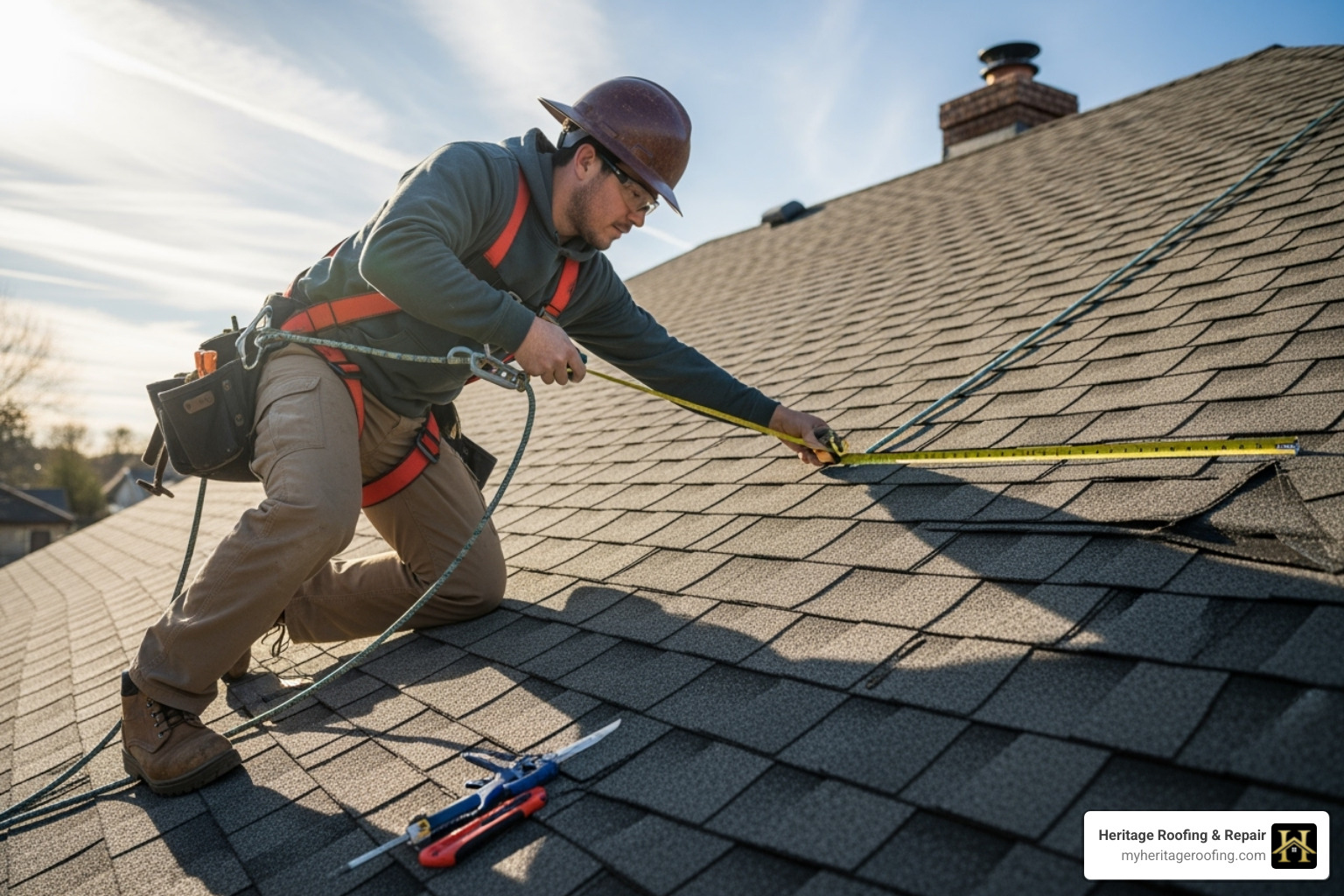
When we talk about roofing repair cost, it’s rarely a one-size-fits-all scenario. Several variables determine the final price of a roof repair. The size of the damaged area, the type of material on your roof, and the complexity of the job all play a significant role. A simple patch on a single-story home will cost far less than a major repair on a steep, multi-level roof with numerous dormers and vents. Let’s dig into these factors to give you a clearer picture.
How Material Choice Affects Your Roofing Repair Cost
The type of roofing material your home has significantly impacts the repair cost. Different materials require different levels of expertise, specialized tools, and naturally, have varying material costs.
- Asphalt Shingles: These are the most common and often the most affordable to repair. Replacing missing or damaged asphalt shingles typically costs between $130 and $1,830. The material itself is relatively inexpensive, with three bundles usually making up one “square” (100 square feet) at a cost of $30-$50 per bundle. However, premium asphalt shingles can cost up to $12 per square foot.
- Metal Roofing: Metal roofs are durable, but their repairs can be more complex and costly. Metal roof repair costs average around $1,700, ranging from $300 to $2,500. This is because metal requires specialized skills for seamless repair and matching.
- Slate Tiles: Known for their longevity and aesthetic appeal, slate roofs are among the most expensive to repair. Repairing slate can cost $523-$717 per slate. The material itself is heavy, requiring robust structural support, and installation/repair demands highly skilled craftsmanship.
- Wood Shakes: Repairs for wood shakes can also be on the higher end, often costing between $130 and $2,000, depending on the extent of the damage. These materials require careful handling and matching to maintain the roof’s integrity and appearance.
Understanding these material differences is crucial for budgeting. You can learn more about various roofing materials on our website. While pricier materials like metal and slate have higher repair costs, they also offer superior durability and lifespan, often lasting 40-70 years for metal and over 100 years for slate.
The Scope and Size of the Damage
The extent of the damage is perhaps the most straightforward factor in determining roofing repair cost. A small, isolated issue will naturally cost less than widespread damage across a large section of your roof.
- Minor Patch Repair: If we’re talking about a small area, say 25 square feet, the cost could be as low as $130 to $1,000. This might involve replacing a few shingles or sealing a minor crack.
- Large Section Repair: As the damaged area grows, so does the price. For example, repairing 100 square feet might cost between $350 and $1,200, while 500 square feet could range from $1,750 to $6,000. If you’re looking at 1,000 square feet of damage, the cost could escalate to $3,500 to $12,000.
- Water Damage Extent: One of the most insidious types of damage is water intrusion. A seemingly small leak can lead to extensive rot in the underlying decking, insulation, or even the structural components of your home. If we find wood rot, the repair cost can range from $300 to $2,000, depending on how far the water has spread and the amount of material that needs replacement. This is why addressing leaks promptly is so critical a small leak fixed today saves you from a much larger, more expensive structural issue tomorrow.
Roof Complexity and Labor Rates
Beyond materials and size, the architectural complexity of your roof and the labor involved greatly influence the final roofing repair cost.
- Roof Pitch: The steepness of your roof (its pitch) affects safety, accessibility, and the time it takes for our team to complete the repair. A steeper roof requires more safety equipment, slower work, and often specialized techniques, which translates to higher labor costs.
- Accessibility: Is your roof easily accessible with ladders, or do we need special equipment like scaffolding or lifts? A difficult-to-access roof, especially one on a multi-story home, will increase labor time and overall cost. The number of stories your home has also plays a role in this.
- Chimneys and Skylights: Features like chimneys, skylights, vents, and dormers add complexity. Each penetration point on a roof requires meticulous flashing work to prevent leaks. Repairing flashing around a chimney, for instance, can cost up to $1,600, while vent repair might be $75-$250. These intricate areas demand more time and specialized skills from our roofers.
- Labor as Percentage of Cost: Labor typically accounts for a significant portion of the total roofing repair cost, often ranging from 40% to 60%. The national average hourly wage for roofers in the U.S. is $24.96, though highly skilled roofers can earn up to $36.51 per hour. In areas with a higher cost of living or specialized labor, these rates can be higher. We ensure our team is highly skilled and compensated fairly, guaranteeing quality craftsmanship. You can find more details on roofer wages from the U.S. Bureau of Labor Statistics.
Common Roof Problems and Their Typical Repair Costs
When we get a call about a roof issue, it’s often one of a few common problems. Understanding the typical costs associated with these issues can help you anticipate expenses and understand the urgency of getting them fixed. Ignoring even a small problem can lead to a much larger, more expensive headache down the line.
Fixing Roof Leaks ($350 – $1,550)
A leaky roof is perhaps the most common and urgent repair. The cost to repair a leaking roof can range from $150 to $1,100, depending on the work involved. The true cost depends on finding the source of the leak and addressing the underlying issue, not just patching the visible symptom.
- Flashing Repair: Damaged or improperly installed flashing around chimneys, vents, skylights, or wall junctions is a frequent culprit for leaks. Repairing flashing can cost between $200 and $500, but if the entire flashing needs replacement, it could be $300 to $1,500. This is a critical repair, as flashing diverts water away from vulnerable areas.
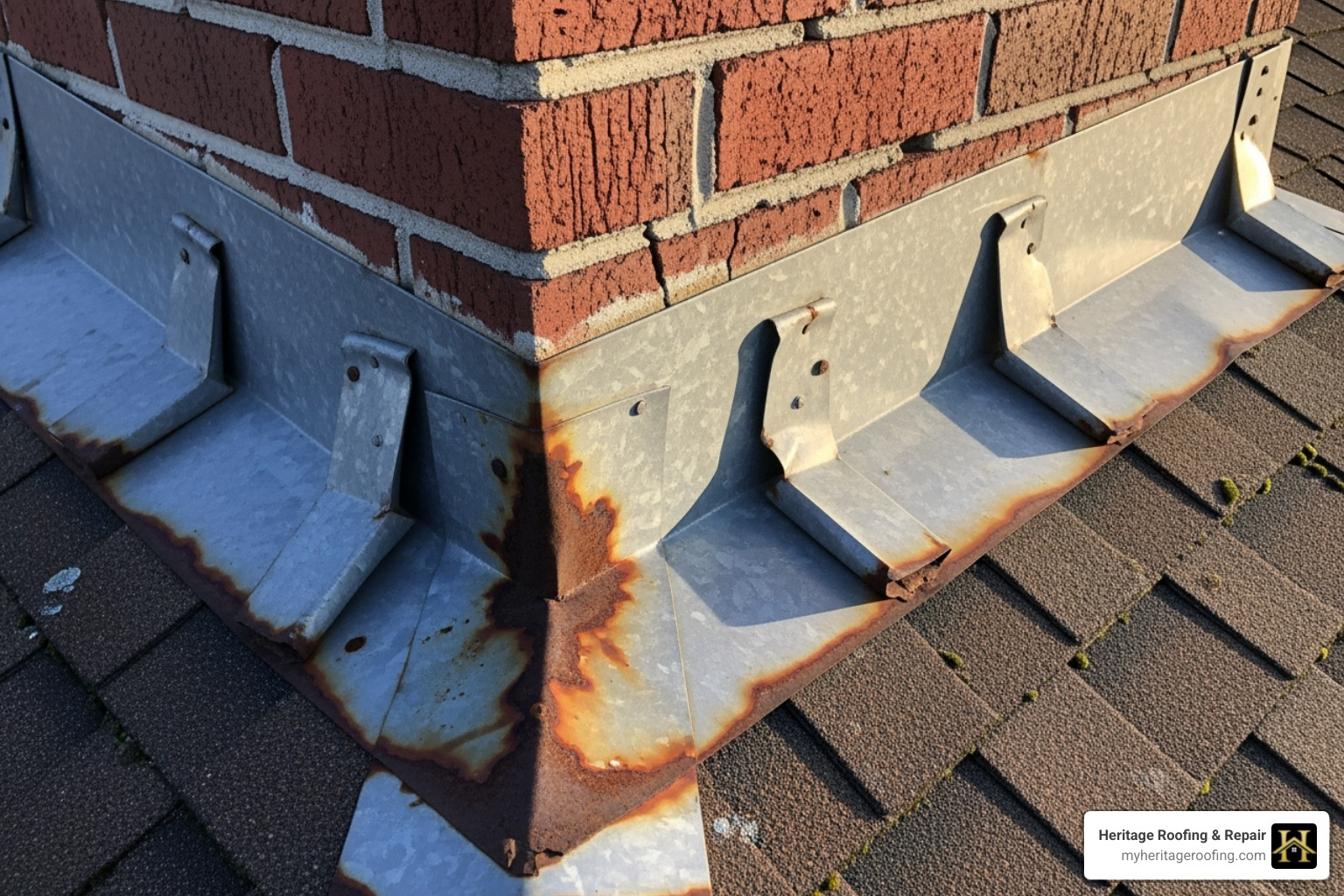
- Vent Pipe Seals: The rubber or metal boots around vent pipes can crack or degrade over time, creating an entry point for water. Repairing or replacing these seals is usually a quicker, less expensive fix, often falling within the $503-$724 range for plumbing vent issues.
- Shingle Penetration: Sometimes, a leak is simply due to a nail pop or a small hole in a shingle. These are typically minor fixes.
- Locating the Source: The biggest challenge and sometimes a significant part of the cost for a leak is simply finding its origin. Water can travel along beams and decking before dripping, making the drip point far from the actual leak. Our experienced team uses advanced techniques to pinpoint the source accurately, ensuring a lasting repair.
Replacing Missing or Damaged Shingles ($360 – $1,830)
Wind, hail, and even foot traffic can cause shingles to go missing or become damaged.
- Wind Damage: High winds can lift and tear away shingles, especially if they’re older or not properly installed.
- Hail Damage: Hail can cause dents, cracks, and severe granule loss on asphalt shingles. Granules in your gutters are a tell-tale sign of hail damage. While a single missing shingle might cost $5-$6 per square foot to replace, more widespread damage can quickly add up. For comprehensive storm damage roof repair, we work swiftly to secure your home.
- Granule Loss: Over time, the protective granules on asphalt shingles can wear away, exposing the asphalt layer to UV rays and accelerating deterioration. While not an immediate leak risk, extensive granule loss indicates the shingle is nearing its end of life and needs replacement.
- Matching Existing Shingles: Finding an exact match for older or discontinued shingles can sometimes be a challenge, potentially requiring a broader section replacement to ensure aesthetics and weather protection.
Addressing a Sagging Roof ($1,500 – $7,000+)
A sagging roof is a serious concern that goes beyond cosmetic issues. It often indicates an underlying structural problem and should prompt an urgent roof inspection.
- Structural Issue: Sagging can be caused by prolonged water damage leading to rotted decking or rafters, improper initial framing, or excessive weight from snow or debris.
- Rafter or Truss Damage: The rafters or trusses are the skeletal structure of your roof. If they are damaged or compromised, they may need to be reinforced or replaced, which can be a complex and costly endeavor. Repairing trusses or rafters often involves labor costs of $45-$75 per hour plus materials.
- Decking Replacement: The roof decking (plywood or OSB) directly supports the shingles. If it’s rotted or warped due to moisture, it must be replaced before new roofing can be installed. This adds significantly to the cost and scope of the repair.
- Urgent Attention: A sagging roof compromises the entire integrity of your home and can lead to catastrophic failure if left unaddressed. It’s not a DIY project and requires immediate professional assessment.
Emergency Fees and Additional Costs
Sometimes, roof damage occurs unexpectedly, demanding immediate attention. This can incur additional fees.
- Emergency Service Surcharge: If you need immediate repair outside of normal business hours, or if the damage requires a rapid response (e.g., after a sudden storm), an emergency service surcharge of $100-$300 may apply. We offer emergency roof repair services because we understand that some damage can’t wait.
- Permit Fees: Depending on the extent of the repair, a building permit may be required by your local municipality. For instance, if more than 50% of your roof is being repaired or replaced, permits in some areas can range from $75 to $250. We handle all necessary permits to ensure your repair is up to code.
- Debris Disposal Fees: The removal and disposal of old roofing materials and debris is often included in a professional quote, but it’s always good to confirm. These fees cover the cost of dumpsters and landfill charges.
Repair or Replace? Making the Most Cost-Effective Decision
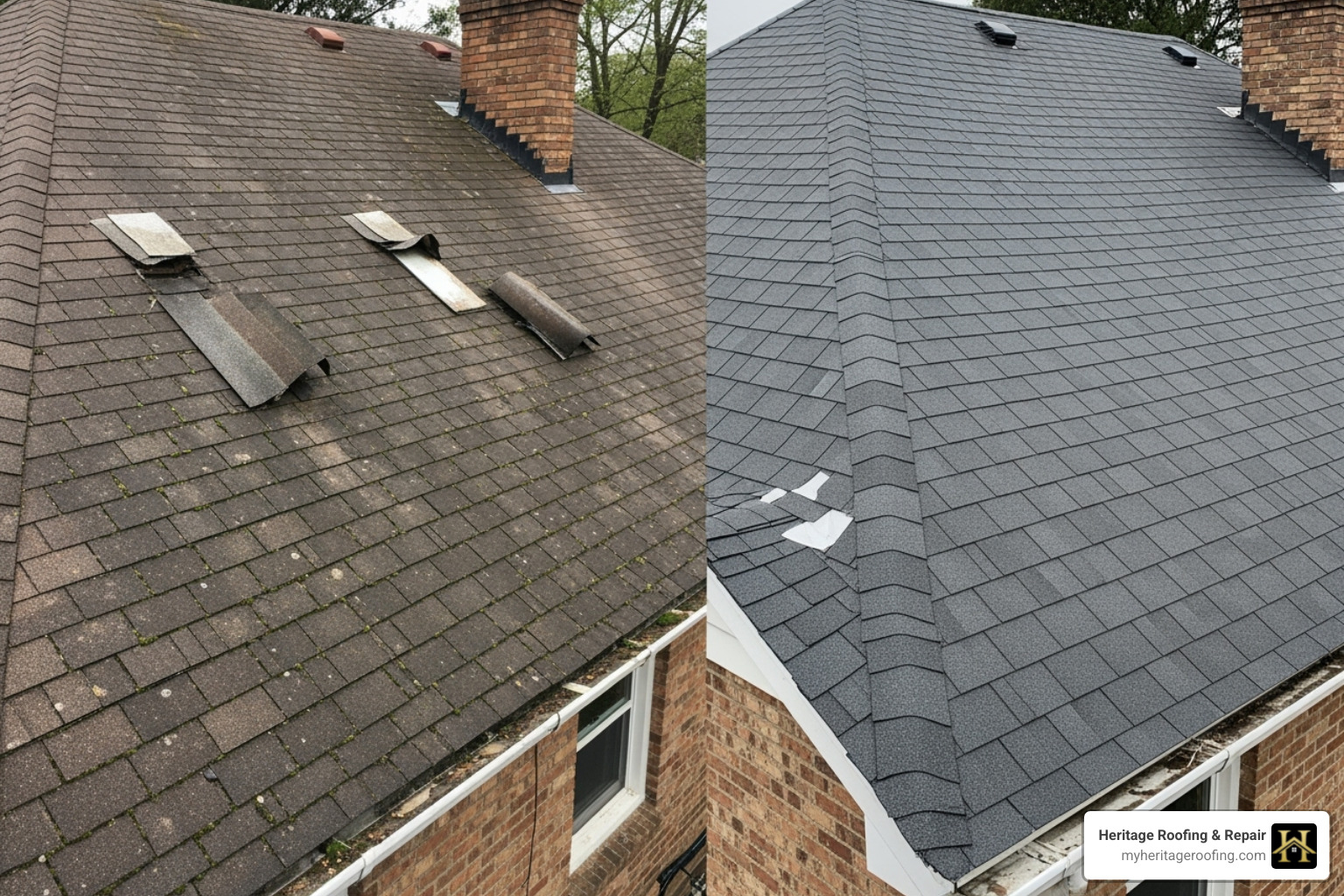
Deciding whether to repair or replace your roof is a major financial decision. While a repair is cheaper upfront, a full replacement can be more cost-effective in the long run, especially if your roof is old or has widespread damage. This is a conversation we have frequently with homeowners in Berryville and across Northwest Arkansas.
- The 50% Rule: A common guideline we use is the “50% rule.” If the cost of the repair approaches or exceeds 50% of the cost of a full roof replacement, or if more than 50% of your roof is damaged, it often makes more sense to replace the entire roof. This is because repairing a large section of an aging roof may only postpone the inevitable, leading to more repairs soon after.
- Roof Age vs. Lifespan: Most roofing materials have a life expectancy of at least 25 years with proper care and maintenance. However, factors like climate, attic ventilation, and material quality play a huge role. For example, asphalt shingles typically last 15-30 years. If your roof is nearing the end of its projected lifespan and experiences significant damage, a replacement offers better long-term value and peace of mind.
- Widespread vs. Localized Damage: If the damage is localized to a small area (e.g., a few missing shingles from a storm), a repair is usually the best option. But if you’re seeing widespread issues like curling, cracking, significant granule loss across the entire roof, or multiple leaks in different areas, these are signs that the roof’s integrity is compromised, and replacement is likely necessary.
- Long-term Value: A new roof provides superior protection, improves curb appeal, and can increase your home’s value. It also comes with new material and workmanship warranties, offering long-term security that repairs on an old roof cannot. While the initial cost of a full roof replacement can range from $4,500 to $32,000 in some areas, it’s an investment that pays dividends in protection and value.
Smart Ways to Save on Your Roof Repair Bill
While some roofing costs are unavoidable, there are several ways to manage your budget and prevent overspending. Proactive maintenance is the single best way to avoid expensive emergency repairs, but knowing how to handle insurance and vet contractors can also lead to significant savings.
Don’t Delay Repairs
This is perhaps the most crucial piece of advice we can give. A small leak today can become a major structural issue tomorrow.
- Proactive Fixes: Addressing minor issues like a loose shingle or a tiny crack as soon as you notice them can prevent them from escalating into costly water damage, mold growth, or even structural failure. We’ve seen countless cases where a few hundred dollars of proactive maintenance could have saved homeowners thousands in extensive repairs.
- Preventing Major Damage: Regular roof maintenance and annual inspections are your best friends. Getting your roof inspected at least once a year and after major storms allows us to catch small problems before they become big, expensive ones. Most minor repairs can be completed within a few hours, saving you money and stress.
Check Your Homeowner’s Insurance
Your homeowner’s insurance policy can be a lifesaver when unexpected roof damage occurs.
- Covered Perils: Most standard policies cover sudden and accidental damage caused by specific perils like wind, hail, fire, or falling objects (e.g., tree branches). However, wear-and-tear or damage resulting from a lack of maintenance is typically not covered.
- Storm Damage Coverage: Given our propensity for severe weather in Northwest Arkansas, understanding your storm damage roof repair coverage, especially for hail and wind, is vital.
- Deductibles: Be aware of your deductible, as you’ll be responsible for that amount before your insurance kicks in.
- Filing a Claim: If you suspect storm damage, contact us for a free inspection. We can provide detailed reports and work with your insurance adjuster to help steer the claims process, ensuring you get the coverage you deserve.
Explore Financial Assistance
Sometimes, even with insurance, a significant repair can strain your budget.
- Getting Multiple Quotes: Always get at least three quotes from different reputable roofing companies. This allows you to compare prices, scopes of work, and ensures you’re getting a fair rate. Don’t be afraid to use a competitor’s quote to negotiate, but be wary of bids that seem unusually low; they might indicate overlooked costs or a lack of proper insurance.
- Negotiating Price: While there’s always room for negotiation, prioritize quality and reliability over the lowest price. A cheaper upfront cost might lead to more expensive problems later.
- Government Programs: Eligible homeowners may qualify for government assistance with the cost of home repairs, including roofing projects. The Department of Housing and Urban Development (HUD) offers special home improvement loans for qualifying residents. Check with local government agencies for programs in your community.
DIY vs. Hiring a Professional: A Cost and Safety Analysis
When faced with a roofing repair cost, the thought of tackling it yourself might cross your mind. It seems like a great way to save money, right? However, for most homeowners, DIY roof repair comes with significant risks that often outweigh the potential savings.
The True Cost of DIY Roof Repair
While DIY-ing your roof repairs can theoretically cost half as much as hiring a professional, this comes with a huge asterisk.
- Tool and Material Costs: You’ll need to buy or rent specialized tools (safety harnesses, ladders, nail guns, shingle removers) and purchase materials. These upfront costs can quickly add up.
- Safety Risks: Roofing work is inherently dangerous. Falls from roofs are a leading cause of construction fatalities. Without proper training, safety equipment, and experience, you put yourself at serious risk of injury or worse. We’ve spent decades learning how to work safely and efficiently at heights.
- Potential for Mistakes: Roofing is a skill. Improper installation or repair techniques can lead to bigger problems, like leaks, premature material failure, or even structural damage. A poorly executed DIY repair might necessitate a professional fix down the line that costs more than the original professional estimate.
- Voiding Warranties: Many roofing material manufacturers’ warranties are contingent on professional installation. A DIY repair could void your warranty, leaving you unprotected against future material defects.
- No Accountability: If a professional makes a mistake, they’re typically insured and offer workmanship warranties. If you make a mistake, you’re on the hook for all subsequent costs. For more on this, check out our guide on DIY vs Professional Roofing.
The Value of a Local Professional
For homeowners in Berryville, Fayetteville, Harrison, and the wider Northwest Arkansas area, choosing a trusted local professional like us provides unparalleled value.
- Expertise and Efficiency: With over 50 years of experience, our team has encountered every type of roof repair imaginable. We quickly and accurately diagnose problems, ensuring the repair is done right the first time. Our efficiency means less disruption to your daily life.
- Workmanship Warranties: We stand by our work. Many roofing companies, including ours, offer a warranty for their work, which covers the cost of incorrectly installed materials or faulty workmanship. This peace of mind is invaluable.
- Peace of Mind: Knowing that your roof repair was handled by insured, experienced professionals means you can sleep soundly, even during a heavy rainstorm. We take care of the permits, the safety, and the proper disposal of materials, so you don’t have to worry.
We are proud to serve our community. You can find us at:
Heritage Roofing & Repair
3458 Arkansas State Hwy 221, Berryville, AR 72616
Phone: (870) 654-1164
Conclusion
Understanding the factors behind roofing repair cost empowers you to budget effectively and protect your home without breaking the bank. From material type to the extent of the damage, every detail matters. While minor fixes may seem manageable, the safety, quality, and long-term security offered by a professional are invaluable.
We’ve explored how material choice, the scope of damage, and roof complexity drive costs, and how common issues like leaks or sagging roofs have typical price ranges. We’ve also armed you with smart strategies to save money, emphasizing the importance of timely repairs, checking your insurance, and exploring financial assistance. Most importantly, we’ve highlighted why, despite the allure of DIY, investing in a professional repair is often the most cost-effective and safest long-term solution.
For over 50 years, Heritage Roofing & Repair has provided dependable craftsmanship to our neighbors. If you need an honest assessment and a fair price from experienced roofers in Harrison, AR, and beyond, contact us today for a free, no-obligation estimate. We’re here to ensure your roof protects your home for years to come.
